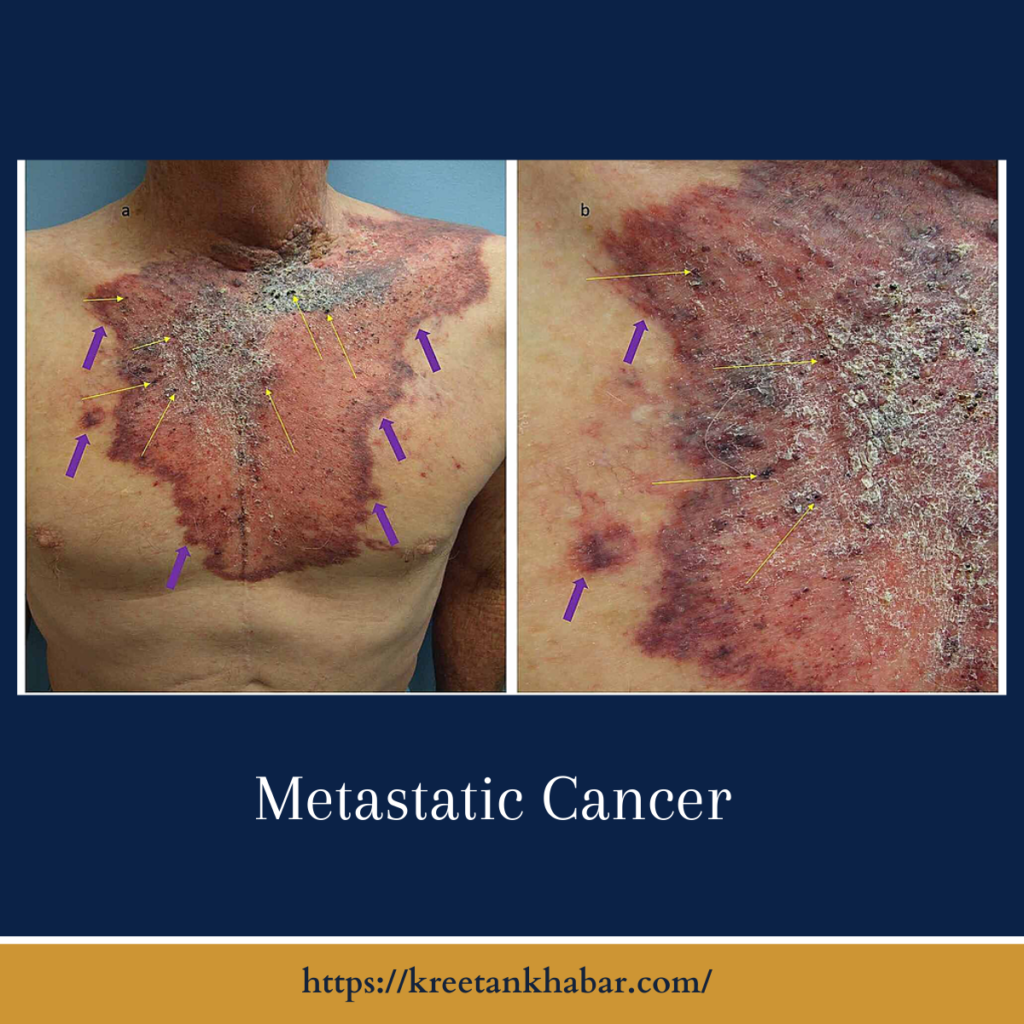Metastatic Cancer: A Personal Exploration
Introduction:
In the labyrinth of cancer, metastatic disease emerges as a profound and challenging chapter. This article seeks to traverse the intricate landscape of metastatic cancer, delving into its essence, causes, manifestations, and the evolving tapestry of treatment options. In essence, it’s an exploration into the human side of metastatic cancer, recognizing the resilience and courage required to face its complexities.

Understanding Metastatic Cancer:
Metastatic cancer, often synonymous with stage IV cancer, represents a pivotal shift in the cancer journey. It occurs when cancer cells, having originated in a primary tumor, embark on a journey through the bloodstream or lymphatic system, finding new homes in distant parts of the body. This transformative process, known as metastasis, ushers in a set of challenges that redefine the narrative for patients and their healthcare teams.
Common Sites of Metastasis:
- Lungs:
- The lungs, ever the vital organs for respiration, often become the unwitting hosts for metastatic cells. Cancers originating in various sites, such as the breast or colon, may find their way here.
- Liver:
- The liver, a metabolic hub, is susceptible to metastases, particularly from cancers rooted in the colon, rectum, pancreas, and stomach.
- Bones:
- Bones, providing structure and support, become sites of metastatic involvement, leading to pain, fractures, and intricate challenges. Breast, prostate, and lung cancers frequently journey to the bones.
- Brain:
- The intricate realm of the brain, a sanctuary of thoughts and emotions, is not spared. Cancers like lung, breast, and melanoma may extend their reach, introducing new complexities and symptoms.
- Adrenal Glands:
- The adrenal glands, often overlooked but crucial for hormonal regulation, may fall prey to metastases. Lung, kidney, or breast cancers can find a foothold here.
Causes and Risk Factors:
- Advanced Stage of Primary Cancer:
- Metastasis is a journey usually undertaken in the advanced stages of cancer, marking a transition from localized concern to a more widespread challenge.
- Tumor Characteristics:
- The characteristics of the primary tumor play a pivotal role. Factors such as its size, aggressiveness, and ability to invade nearby tissues contribute to the likelihood of metastasis.
- Lymph Node Involvement:
- The involvement of lymph nodes, essential components of the body’s immune system, can signify an increased risk of metastatic spread.
- Cancer Type:
- Different cancers exhibit varying tendencies for metastasis. Some, like pancreatic cancer, may have an early predilection for spreading, while others progress more gradually.
- Genetic Factors:
- Genetic factors also play a role. Individuals with certain genetic mutations may be predisposed to cancers that exhibit a higher likelihood of metastasis.
Navigating the Human Side:
Metastatic cancer is not just a clinical entity; it’s a deeply personal and human experience. It requires resilience, courage, and a support network that extends beyond medical offices. From the emotional toll on patients and their families to the dedication of healthcare professionals, the human side of metastatic cancer deserves recognition.
Treatment Landscape:
The treatment journey for metastatic cancer is evolving, offering a blend of traditional approaches and cutting-edge therapies. Chemotherapy, targeted therapies, immunotherapy, and precision medicine are all contributing to a more personalized and nuanced approach to care.
Conclusion:
In the midst of the complexities surrounding metastatic cancer, there exists a tapestry woven with stories of strength, hope, and the indomitable human spirit. As we delve into the heart of metastatic cancer, let us not only seek to understand its clinical nuances but also acknowledge the profound human experience it encompasses. In doing so, we honor the resilience of those facing this formidable journey and the relentless pursuit of progress in the realm of cancer care.
Read also : Exploring the Delightful Boost of the Green Tea Shot 2023